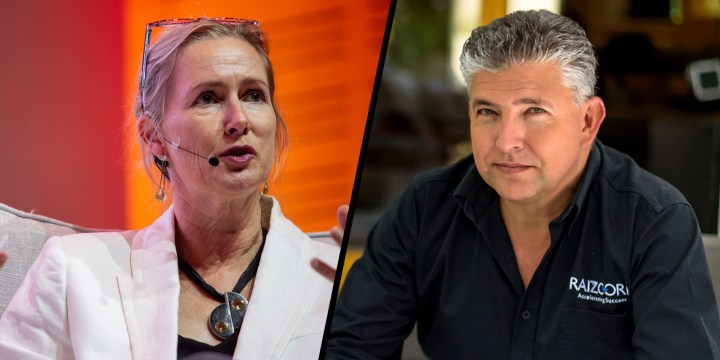BUSINESS MAVERICK WEBINAR
Bouncing back from failure: How successful entrepreneurs start again

Starting again is not a preferred choice, but it is also not without possibilities. In a Daily Maverick webinar, Raizcorp CEO Allon Raiz draws on his more than 20 years of experience in business and in supporting more than 13,000 entrepreneurial businesses to offer insights on how to start again with the highest likelihood of success.
For South African SMMEs, already contending with a contracting economy, additional shocks from Covid-19 lockdown measures have forced business owners to severely cut back on spending.
For some this may not be enough, while for others it is already too late, as analysts are predicting that about 60% of SMMEs will close before the crisis is over.
Many entrepreneurs will have no option but to close down their businesses, says Raiz.
“With the ravaging effects Covid-19 has had on the economy, formal employment may not be an alternative for many. Starting again is the only choice available for these entrepreneurs.
“But it is a different scenario for what is called ‘necessity entrepreneurs’. They have been forced into starting a business, because they have no alternative, and given the chance they would probably take up formal employment instead.”
So this group did not form part of this conversation.
The type of entrepreneur Raiz is referring to here, in his talk with Business Maverick associate editor Sasha Planting, is what is called an “opportunity entrepreneur”. They search for gaps in the market where they believe money can be made.
But the entrepreneurial journey is arduous and requires a set of characteristics that include incredibly high levels of tenacity, a high tolerance for rejection, strong work ethic, an ability to listen, being flexible in the moment, being highly resourceful, being highly self-motivated, the ability to reach out for advice… the list is long.
As in any other crisis, no business has proved either too big or too small to fail. Raiz says successful entrepreneurs bounce back quickly from failure.
“Once the wounds have been licked and the failure acknowledged, they recover their mindsets at lightning speed and begin the process of rebirth – but this time with the added advantages of additional relationships, additional assets and additional experience.”
The US, for all its ills, does not shame failure, he adds. “In a weird way, it venerates failure. As a result of these differing outlooks on failure, a research paper produced some years ago showed that the re-entry rate [the number of times entrepreneurs start again] is 3.6 times in the US as opposed to 1.1 times in South Africa. I believe that this statistic has a lot to do with the structural shame that exists within our society.”
Many entrepreneurs who close down their businesses will probably open up a similar business, he says. “The advantages of the second time around are more experience and more learning from the mistakes made in the previous iteration.”
Raiz cited the example of an entrepreneur he knows, who was making 38% gross profit margins before Covid-19 in a business he recently shut down, and is now making 57% gross profit margins in a new business he’s set up.
“He has simply shed all the legacy people, processes and clients that hindered his ability to make good margins.”
The week after he voluntarily shut down his business (which had been in operation for 11 years), the entrepreneur was devastated, depressed and angry, adds Raiz. “Only 10 weeks later, his words to me were:
‘Covid-19 was the best thing that has happened to me in a long time. I went from pain to shame, to changing my game.’”
Crises have been pivotal in developing international societies. Pandemics have helped advance healthcare systems, wars have fuelled technological innovations and the global financial crisis helped advance tech companies like Uber and Airbnb.
The coronavirus pandemic will arguably not be an exception and entrepreneurs can be expected to rise to the challenge.
People who previously had inhibitions about buying online were suddenly forced to do so. Businesses that previously were only considering e-commerce are suddenly going digital in droves.
While traditional bricks and mortar merchants are cutting jobs, digital commerce businesses are seeing a record jump in demand. Amazon is hiring 100,000 workers, Microsoft Teams, Slack and Zoom are adding millions of users a week, and in South Africa businesses like OneCart, Bottles, Quench, UCOOK, and Sixty60 from Checkers are experiencing phenomenal adoption and growth. DM/BM
















 Become an Insider
Become an Insider
Comments - Please login in order to comment.